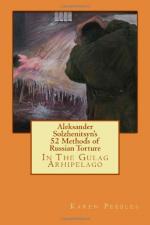|
This section contains 2,393 words (approx. 8 pages at 300 words per page) |

|
Alexander Solzhenitsyn has been described by different critics as both an old-fashioned writer and a genuine innovator. Paradoxically, both of these views are correct. In the early 1930s, when his fame in the Soviet Union was at its height, the official aesthetic of socialist realism, with its emphasis on optimism and education, was beginning to give way to a more candid and exploratory approach to Soviet life. Writers were being admitted to those dark areas of social and political evil which they had hitherto been obliged to by-pass. They were acquiring the freedom to question the assumptions which they had been expected to affirm. They were gaining the right to express private thoughts and exercise their consciences on moral and ethical problems, independently of official ideology. In other words, Soviet literature was quietly repossessing the traditions of critical realism bequeathed to it by its nineteenth-century forebears. (p. 28)
Solzhenitsyn's...
|
This section contains 2,393 words (approx. 8 pages at 300 words per page) |

|


